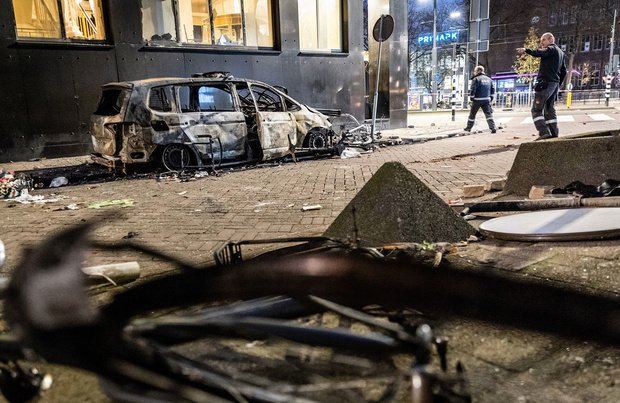The demonstrations during last weekend in several European cities deteriorated in Brussels and Rotterdam to riots that raised questions about the preparedness and response of the police.
As already reported, in Brussels more than 35,000 people took to the streets on Sunday to protest against the new coronavirus measures. However, events soon turned sour when small groups started throwing projectiles at the police, which in turn deployed water cannons and tear gas, transforming certain areas in Brussels into a battlefield.
The riot resulted in 44 arrests, three injured police officers and a lot of damage to public and private property.
In Rotterdam the protest demonstration on Friday was much smaller but hit the headlines because the use of live fire by the police which resulted in three injured persons.
How could what started as a peaceful demonstration which was tolerated by the authorities in Rotterdam deteriorate into a violent riot where live fire was used?
A Dutch source told The Brussels Times that only ca 100 people demonstrated in the beginning but the number increased to ca 1,000 persons where the majority was “bystanders” and a minority rioters engaged in what the mayor of Rotterdam described as “an orgie in violence”. The mass of bystanders served as a place where the rioters could disappear. Last time something like this happened was in 2009.
In Rotterdam, football hooligans were reportedly involved in the riot. Those who protested peacefully are often people who believe in conspiracy theories floating round in media about the coronavirus and vaccinations.
The police were apparently taken by surprise, felt threatened by the Molotov cocktails and fireworks thrown at them by the rioters, and acted under pressure when it used live fire. According to media reports, the police force grew to several hundreds until it got the situation under control.
“There was a demonstration against corona measures which ended in riots,” commented Anna Sophia Posthumus, spokesperson of the Dutch Ministry of Justice and Security. “There is no specific reason why, other than that some people unfortunately turned against the police. These weren’t demonstrators.”
At this moment 173 rioters have been arrested, she added. “The police and public prosecution office are still investigating so more arrests will be made the coming days and weeks. They will be prosecuted. The use of fire by the police is being investigated, as is common when police is required to use force or fire weapons.”
Have people got used to an easy- going approach to restrictions with no strict lockdowns during previous waves or how do you or Dutch media explain the riot?
“It’s too early to draw any conclusions, as there were only these riots in Rotterdam,” she replied.
There were also demonstrations in Amsterdam, Breda and the Haque. In the Haque, demonstrators on Saturday evening confronted police in the “allochtone” quarters.
In the end, the approach in the Netherlands was similar to that in Belgium and both countries are now forced to put into place new restrictions because of the fourth wave and lingering vaccine hesitany. In both countries, people are shocked about the violence in the demonstrations.
Asked at yesterday’s press conference in Brussels about the European Commission’s reaction, a spokesperson replied that it could not comment as it had not witnessed it and referred to the investigation by the local authorities.
It was understandable that people get tired of living during restrictions and want their lives back but rights can be restricted during an emergency situation which threatens public health. “To demonstrate is a fundamental democratic right but there is no place for violence in demonstrations,” the spokesperson said.
M. Apelblat
The Brussels Times

